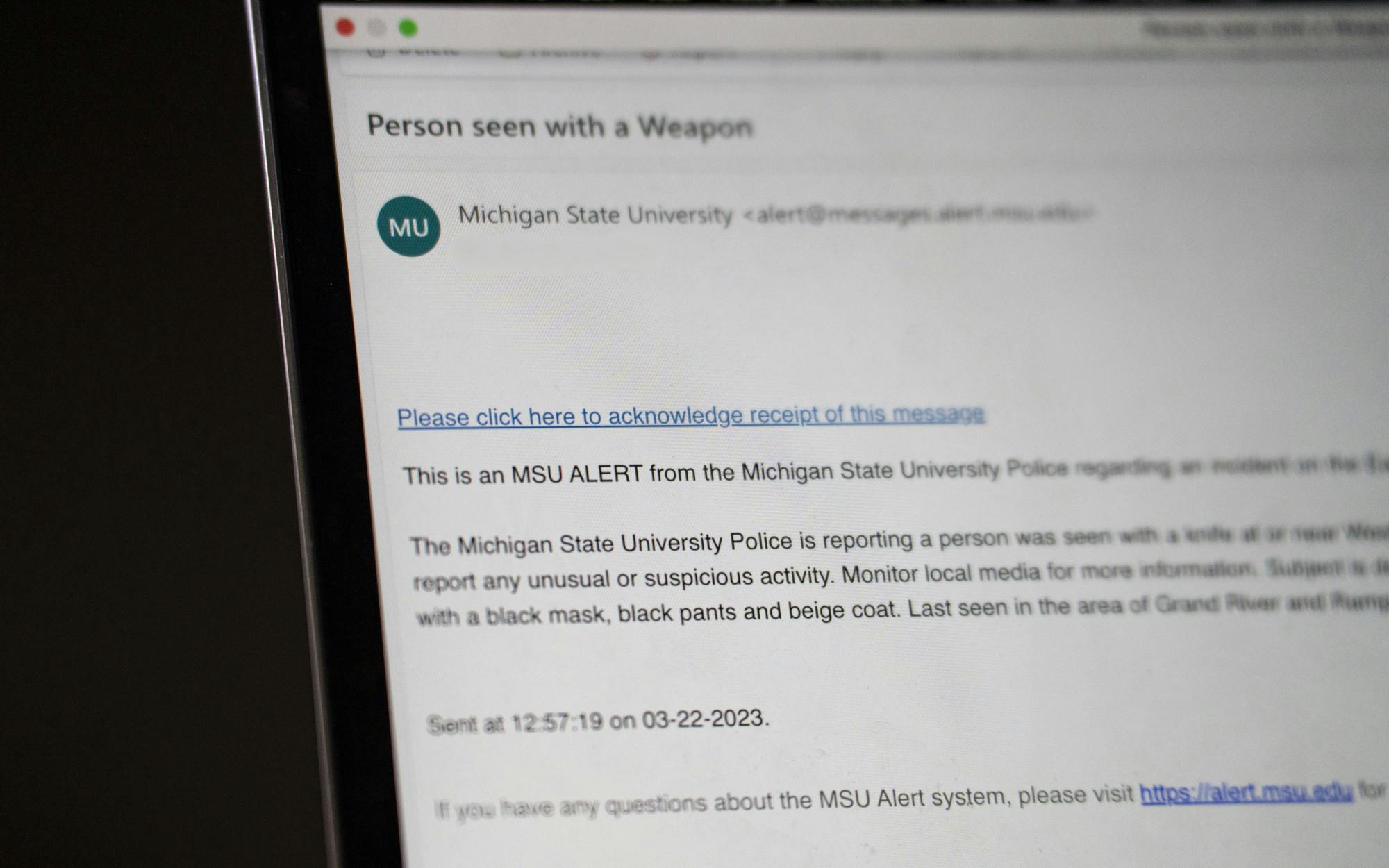Following confusion and panic from students and faculty about the MSU safety alerts during the March 22 incident involving a knife shown at a restaurant, questions are being posed about the efficiency of the alert system itself. Prior, during the February 13 mass shooting on campus, students also reported receiving alerts at different times than their peers.
Within MSU’s police department, the emergency management division is in charge of the alert operational system itself.
According to MSU police, specifically for SMS messages, all texts go out in one batch once the message is sent from their end. However, this depends on the recipient’s phone service, cell towers and Wi-Fi, which could result in delays.
Another option would be to download the SafeMSU app, which is now able to receive the same alerts. This could potentially be more efficient because receiving the alert would be based on internet service or network login, as opposed to cell service and the position of cell towers, MSU police communications manager Dana Whyte said.
Regarding the email notifications, the delay is likely a fault of the university email system which batches emails to students, even though emails go out all at once through the overarching notification system, called Everbridge.
Regardless, emergency management division captain Dave Oslund said both Everbridge and the university email system are being examined for issues.
“We are working with Everbridge, that is our current provider, and MSU IT to try and speed that process up,” Oslund said.
The system is also being evaluated for a potential change, though MSUPD has another year left in its contract with Everbridge.
“We are looking at the Everbridge system, and seeing if that is the best option for our university to use, or whether we move to another system to send out those mass notification alerts,” Whyte said. “Nothing is official and set in stone yet as far as what direction we’re going into, but we are looking at that system and seeing where it could be improved, and where there is a better option ... if we would go that route.”
Though other systems are being considered, as of currently, there is not an active request for proposals, Oslund said.
This student confusion surrounding the March 22 alerts was said to be because geographic information regarding the man’s location was taken directly from witnesses and put into pre-scripted templates used by MSUPD in order to send out alerts in a timely manner, MSU chief of police Chris Rozman said in a statement last month.
The pre-scripted templates mentioned are used because of how time consuming free scripting a message may be, Oslund said. When free scripting, there are a number of criteria that have to be loaded into the system, such as what devices the alert should be sent to, which mailing list will be receiving the alert and the duration of how long the alert will be active.
“We built these pre-scripted templates so that all of the behind-the-scenes work was done, and it would be a quick fill-in-the-blanks and the message goes out,” Oslund said. “Most of our police supervisors have access and have the ability to do that.”
MSUPD is reportedly examining the message and making potential changes to the system to avoid future confusion.
“Every time we send a message, we review the message and we look at how we can improve that process (going) forward,” Oslund said. “So we’ve made a couple of changes that will likely create a faster, cleaner message in the future.”
Oslund did not elaborate on particular changes made to the alert system, aside from the SafeMSU app feature mentioned above.
Support student media!
Please consider donating to The State News and help fund the future of journalism.
Discussion
Share and discuss “MSU police examines alert system following concern for delayed, vague alerts” on social media.







